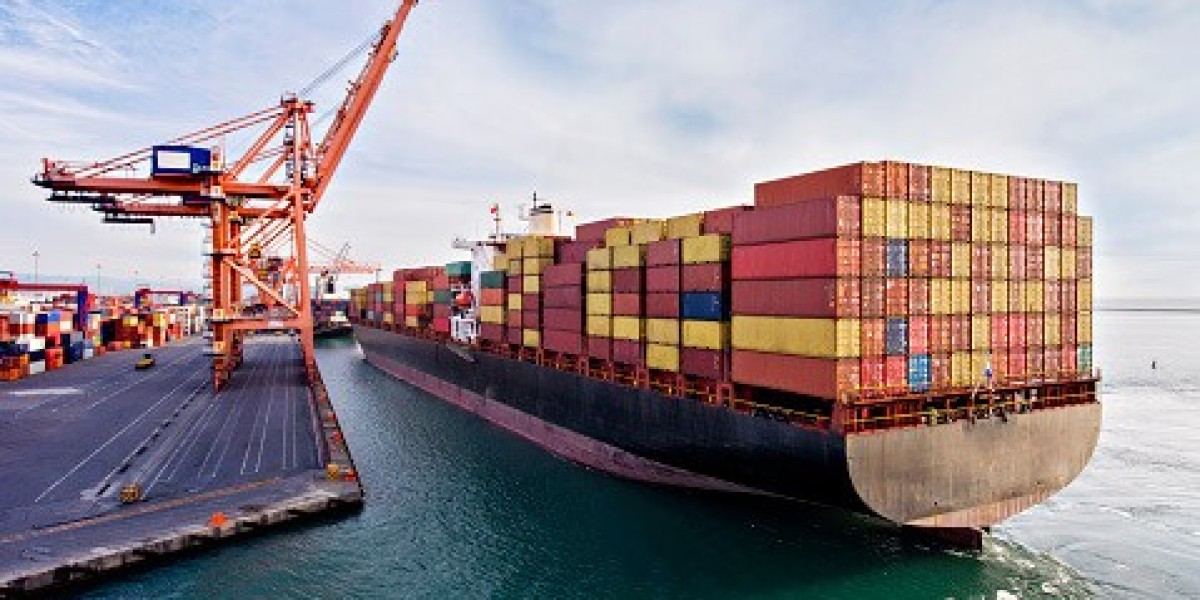In the interconnected world of global trade, the movement of goods from one point to another is a vital aspect of any business's success. Freight shipping and freight forwarding services play a pivotal role in ensuring seamless and efficient movement of goods across borders and continents. In this guide, we delve into the intricacies of freight shipping and the indispensable role of freight forwarding services, shedding light on their significance, processes, and benefits.
Understanding Freight Shipping
Freight shipping, also known as cargo shipping, refers to the transportation of goods in bulk, often in containers, between different locations. It is a complex process that involves multiple modes of transport, including ships, airplanes, trucks, and trains, depending on the distance and destination of the shipment.
Modes of Freight Shipping
1. Ocean Freight Shipping:
Ocean shipping is one of the most common and cost-effective methods for transporting goods internationally. It involves container ships that carry large quantities of cargo in standardised containers, making it suitable for bulky or heavy shipments.
2. Air Freight Shipping:
When speed is of the essence, air freight shipping is the preferred choice. It offers rapid delivery, making it ideal for perishable goods and time-sensitive materials.
3. Road Freight Shipping:
Road transportation plays a crucial role in connecting distribution centers and bridging the gaps that other modes of transport might not cover efficiently. Trucks and lorries are the mainstay of road freight shipping.
4. Rail Freight Shipping:
Particularly useful for inland transportation, rail freight offers a balance between cost and speed. It is commonly used for moving goods within a country or continent.
Freight Forwarding: An Introduction
Freight forwarding services are the architects behind the smooth movement of goods across international borders. These services act as intermediaries between the shipper (the business or individual sending the goods) and various transportation services, ensuring that the entire shipping process is well-coordinated.
The Role of Freight Forwarders
Freight forwarders are logistics experts who handle a range of tasks to facilitate seamless shipping:
1.Documentation:
Freight forwarders manage the necessary documentation, including customs forms, bills of lading, and certificates of origin, ensuring compliance with international regulations.
2. Carrier Selection:
Based on the nature of the goods, budget constraints, and delivery deadlines, freight forwarders choose the most suitable carriers and routes.
3. Packaging and Labelling:
Proper packaging and labelling are crucial for safe transportation. Freight forwarders provide guidance on appropriate packaging methods and ensure that shipments are correctly labelled.
4. Customs Clearance:
Navigating the complex landscape of customs regulations and duties is a significant challenge in international shipping. Freight forwarders handle customs clearance, minimising delays and avoiding costly errors.
5. Insurance:
Freight forwarders can also assist in arranging cargo insurance, providing protection against unforeseen events during transit.
Benefits of Freight Forwarding Services
1. Expertise:
Freight forwarders possess extensive knowledge of the intricacies of international shipping regulations, saving businesses time and resources.
2. Efficiency:
With their well-established networks and connections, freight forwarders streamline the shipping process, reducing delays and ensuring timely delivery.
3. Cost-Effectiveness:
Freight forwarders' expertise in carrier selection and route optimization can lead to cost savings for businesses.
4. Risk Mitigation:
Handling customs regulations, documentation, and insurance, freight forwarders minimise the risks associated with international shipping.
5. Global Reach:
Freight forwarding services enable businesses to expand their markets by facilitating access to international customers.
Navigating the Freight Shipping Process
1. Planning and Quoting:
The process begins with the shipper providing details about the shipment to the freight forwarder, who then generates a quote based on factors like shipment size, weight, destination, and mode of transport.
2. Booking and Documentation:
Once the quote is accepted, the freight forwarder books space with the chosen carrier and initiates the documentation process. This includes preparing bills of lading, certificates of origin, and customs declarations.
3. Collection and Packaging:
The goods are collected from the shipper's location and appropriately packaged to withstand the rigors of transportation.
4. Transportation:
Depending on the chosen mode of transport, the goods are moved to the port, airport, or distribution center. The freight forwarder tracks the shipment throughout its journey.
5. Customs Clearance:
At the destination, the freight forwarder manages the customs clearance process, ensuring that all necessary paperwork is in order and duties are paid.
6. Final Delivery:
Once cleared, the goods are transported to their final destination, where they are received by the consignee (receiver) of the shipment.
Conclusion
Freight shipping andfreight forwarding services in Houston are the cornerstones of the modern global economy. They ensure that products reach customers, businesses, and markets around the world, enabling the expansion of international trade. With their expertise in logistics, documentation, customs clearance, and risk management, freight forwarders play a pivotal role in simplifying the complex process of international shipping. As businesses continue to explore new markets and opportunities, the role of freight forwarding services in facilitating seamless and efficient freight shipping remains indispensable.
 " class="wow_main_float_head_img">
" class="wow_main_float_head_img">







